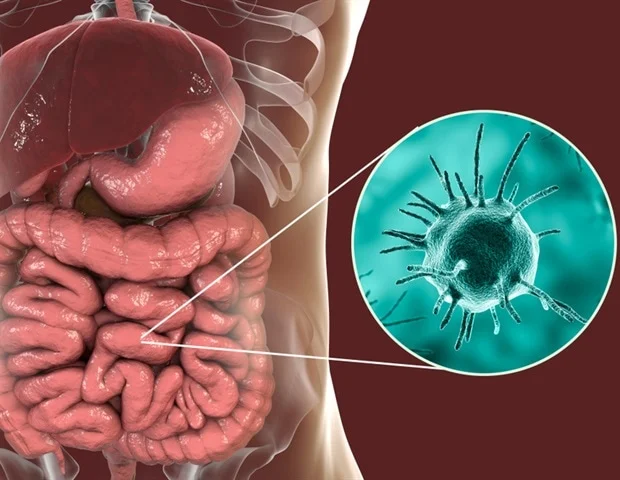Sleep is not a luxury—it is a biological necessity. When disrupted, it can affect nearly every aspect of our lives, from our mental clarity to our physical health and emotional well-being. That’s why choosing the right sleep disorder center is essential for those struggling with insomnia, sleep apnea, narcolepsy, restless legs syndrome, or other sleep-related conditions. In this guide, we explore in detail what makes a sleep disorder center exceptional and how to identify the best one for your specific needs.
What Is a Sleep Disorder Center?
A sleep disorder center, also known as a sleep clinic or sleep disorder clinic, is a specialized medical facility dedicated to the diagnosis, treatment, and management of sleep disorders. These centers are typically staffed by board-certified sleep medicine specialists, neurologists, pulmonologists, and technicians trained in polysomnography—the comprehensive recording of the biophysiological changes that occur during sleep.
Patients are often referred to sleep centers by their primary care physicians after reporting symptoms such as chronic fatigue, loud snoring, waking up gasping for air, or excessive daytime sleepiness.
Top Signs You Need a Sleep Disorder Center
Knowing when to seek professional help is key. Below are critical warning signs indicating it’s time to consult a sleep specialist:
Loud, persistent snoring
Pauses in breathing during sleep (observed by a partner)
Insomnia or difficulty falling asleep
Excessive daytime drowsiness, even after a full night’s sleep
Unexplained headaches in the morning
Irritability, depression, or mood changes
Falling asleep during normal daytime activities
These symptoms may point to serious sleep disorders like obstructive sleep apnea, narcolepsy, parasomnias, or circadian rhythm disorders.
Key Services Offered by High-Quality Sleep Centers
The best sleep disorder centers offer a comprehensive suite of diagnostic and treatment services, tailored to each individual’s unique condition. Look for centers that provide:
1. Diagnostic Sleep Studies
Polysomnography (PSG): An overnight sleep study that monitors brain activity, breathing patterns, heart rate, oxygen levels, and body movements.
Home Sleep Apnea Testing (HSAT): A simplified version of PSG for diagnosing sleep apnea at home.
Multiple Sleep Latency Test (MSLT): Measures daytime sleepiness and is used to diagnose narcolepsy.
Maintenance of Wakefulness Test (MWT): Evaluates the ability to stay awake during the day in a quiet, non-stimulating environment.
Comprehensive Guide to Choosing the Right Sleep Disorder Center
Sleep is not a luxury—it is a biological necessity. When disrupted, it can affect nearly every aspect of our lives, from our mental clarity to our physical health and emotional well-being. That’s why choosing the right sleep disorder center is essential for those struggling with insomnia, sleep apnea, narcolepsy, restless legs syndrome, or other sleep-related conditions. In this guide, we explore in detail what makes a sleep disorder center exceptional and how to identify the best one for your specific needs.
What Is a Sleep Disorder Center?
A sleep disorder center, also known as a sleep clinic, is a specialized medical facility dedicated to the diagnosis, treatment, and management of sleep disorders. These centers are typically staffed by board-certified sleep medicine specialists, neurologists, pulmonologists, and technicians trained in polysomnography—the comprehensive recording of the biophysiological changes that occur during sleep.
Patients are often referred to sleep centers by their primary care physicians after reporting symptoms such as chronic fatigue, loud snoring, waking up gasping for air, or excessive daytime sleepiness.
Top Signs You Need a Sleep Disorder Center
Knowing when to seek professional help is key. Below are critical warning signs indicating it’s time to consult a sleep specialist:
Loud, persistent snoring
Pauses in breathing during sleep (observed by a partner)
Insomnia or difficulty falling asleep
Excessive daytime drowsiness, even after a full night’s sleep
Unexplained headaches in the morning
Irritability, depression, or mood changes
Falling asleep during normal daytime activities
These symptoms may point to serious sleep disorders like obstructive sleep apnea, narcolepsy, parasomnias, or circadian rhythm disorders.
Key Services Offered by High-Quality Sleep Centers
The best sleep disorder centers offer a comprehensive suite of diagnostic and treatment services, tailored to each individual’s unique condition. Look for centers that provide:
1. Diagnostic Sleep Studies
Polysomnography (PSG): An overnight sleep study that monitors brain activity, breathing patterns, heart rate, oxygen levels, and body movements.
Home Sleep Apnea Testing (HSAT): A simplified version of PSG for diagnosing sleep apnea at home.
Multiple Sleep Latency Test (MSLT): Measures daytime sleepiness and is used to diagnose narcolepsy.
Maintenance of Wakefulness Test (MWT): Evaluates the ability to stay awake during the day in a quiet, non-stimulating environment.
2. Personalized Treatment Plans
CPAP Therapy: The most common treatment for obstructive sleep apnea, delivering continuous air pressure via a mask.
Oral Appliances: Custom dental devices that adjust the position of the tongue and lower jaw.
Behavioral Therapy: Cognitive-behavioral therapy for insomnia (CBT-I) to treat chronic sleep issues without medication.
Medication Management: When appropriate, prescribed drugs for conditions such as narcolepsy or restless leg syndrome.
How to Choose the Best Sleep Disorder Center
Choosing the right center is critical. Here’s what to consider:
Accreditation
Ensure the center is accredited by the American Academy of Sleep Medicine (AASM)—the gold standard in sleep medicine. Accreditation ensures the facility meets high standards in patient care, equipment, and physician qualifications.
Qualified Staff
Check that the center is staffed by board-certified sleep medicine physicians, registered sleep technologists, and experienced respiratory therapists.
Comprehensive Evaluation
Look for centers that offer a full clinical assessment, not just a single test. This includes a detailed patient history, physical examination, and individualized treatment plan.
Modern Equipment & Comfortable Facilities
Top centers invest in state-of-the-art diagnostic tools and provide comfortable sleep environments, mimicking a natural bedroom setting to obtain accurate test results.
Common Sleep Disorders Treated at Sleep Centers
Obstructive Sleep Apnea (OSA)
Characterized by blocked airways during sleep, leading to repeated awakenings and oxygen deprivation.
Insomnia
Chronic inability to fall asleep or stay asleep, often treated with behavioral therapy or lifestyle changes.
Narcolepsy
A neurological disorder causing excessive daytime sleepiness and sudden sleep attacks.
Restless Legs Syndrome (RLS)
An uncontrollable urge to move the legs, usually due to discomfort.
Circadian Rhythm Disorders
Disruptions in the body’s natural sleep-wake cycle, often related to shift work or jet lag.
Benefits of Visiting a Sleep Disorder Center
Accurate Diagnosis through advanced testing and monitoring
Customized Treatment Plans that address your specific condition
Improved Quality of Life by restoring healthy sleep patterns
Reduced Risk of Complications such as heart disease, diabetes, and stroke
Ongoing Support & Follow-Up to ensure treatment effectiveness
FAQs About Sleep Disorder Centers
What happens during a sleep study?
During a sleep study, sensors are placed on your scalp, chest, and legs to monitor brain waves, breathing, heart rate, oxygen levels, and body movements. The test is painless and typically conducted overnight in a comfortable, private room.
How do I prepare for a sleep study?
Avoid caffeine, alcohol, and napping on the day of the test. Bring comfortable sleepwear and personal hygiene items. Follow your normal bedtime routine as much as possible.
Is sleep testing covered by insurance?
Most insurance plans, including Medicare and Medicaid, cover sleep studies if they are medically necessary and ordered by a physician. It’s best to verify coverage with your insurance provider and the sleep center.
How long does it take to get results from a sleep study?
Results are typically available within 1–2 weeks after the study. A follow-up appointment will be scheduled to review findings and discuss treatment options.
Can children be evaluated at sleep centers?
Yes, many sleep disorder centers have pediatric sleep specialists and facilities designed to evaluate and treat sleep problems in children and adolescents.
Are there alternatives to overnight sleep studies?
Yes, for some patients—especially those suspected of having moderate to severe obstructive sleep apnea—a home sleep apnea test (HSAT) may be sufficient and more convenient.
Final Thoughts
The importance of proper sleep cannot be overstated. If you’re experiencing symptoms of a sleep disorder, seeking help from a certified sleep disorder center is a critical step toward better health and overall well-being. With expert evaluation, targeted treatment, and compassionate care, a good night’s rest is within reach.















Leave a comment